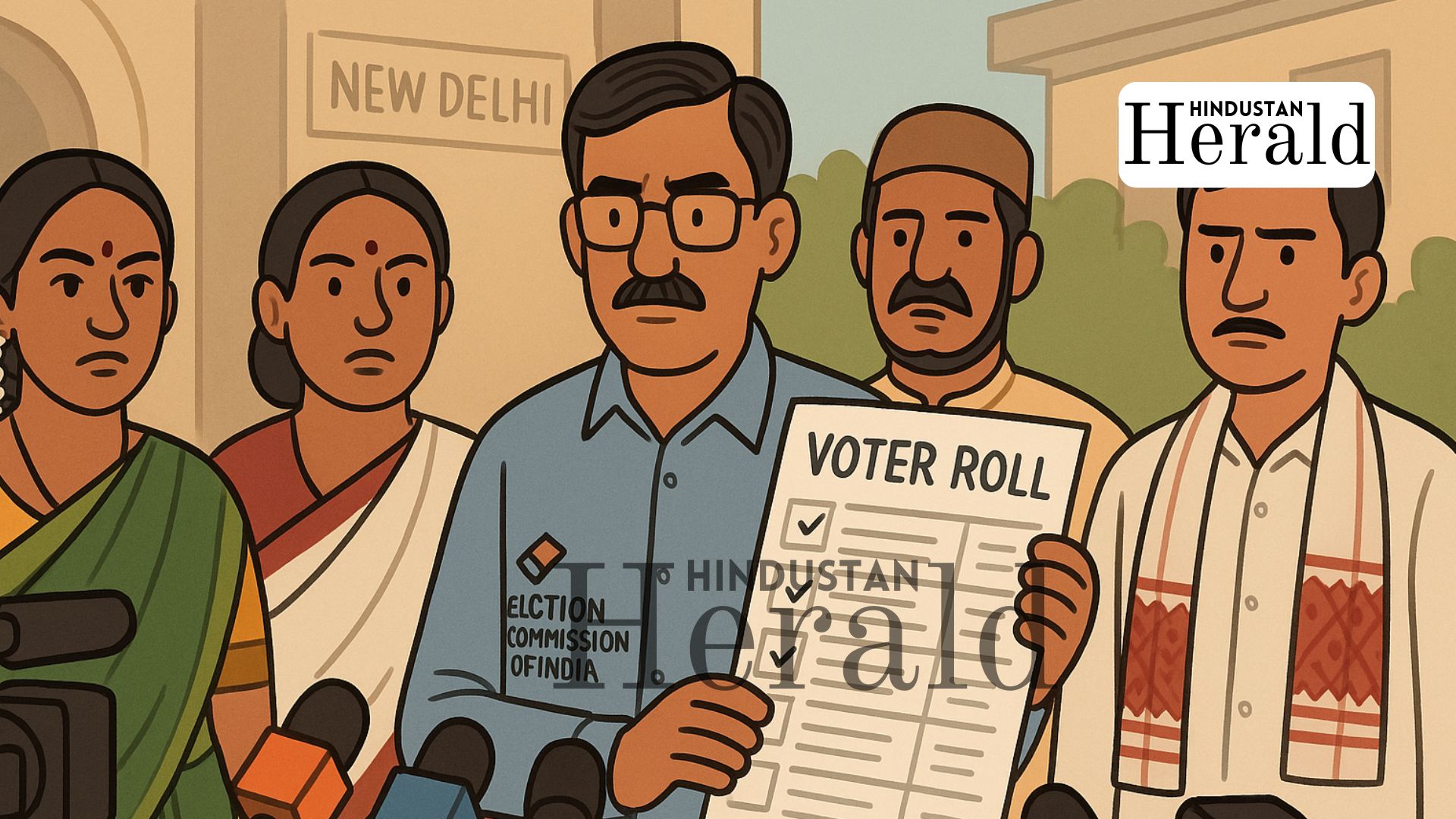New Delhi, October 27: By late afternoon, all eyes in the capital will turn to Nirvachan Sadan. The Election Commission of India is holding a press briefing at 4:15 pm, and by all indications, it’s gearing up to announce something big, a nationwide voter roll revision that could affect nearly every polling booth in the country.
It’s called a Special Intensive Revision, or SIR bureaucratic language for what’s essentially a door-to-door check of who’s alive, who’s moved, and who’s old enough to be added. It’s a clean-up drive, but in India, even that can be political dynamite.
A Push To Scrub The Rolls
Officials have been preparing for weeks. Senior electoral officers flew into Delhi through September and October for long briefings, some lasting entire days. The message, according to one state CEO who didn’t want to be named, get the machinery ready before the new year.
If the plan holds, this will be a phased rollout. Around ten to fifteen states are expected in the first batch places with elections coming up next year: Tamil Nadu, West Bengal, Kerala, Assam, and Puducherry.
Others will be left out for now, Maharashtra, because of municipal polls, and the northern hill states, where snow makes any kind of ground verification near impossible this time of year.
Bihar Was The Test Run
This national push didn’t appear from thin air. Earlier this year, the Commission ran a similar drive in Bihar, and what they found was staggering. More than 52 lakh names couldn’t be verified voters gone missing, addresses outdated, some people long deceased.
The Chief Election Commissioner called the result a “purification” of the rolls, saying Bihar’s system would become a model for the rest of India. Whether that’s proof of success or a red flag depends on where you stand.
Because, as parties in other states are quick to remind everyone, “cleaning up” voter lists has often meant something else losing the poorest, the mobile, the unheard.
Trouble Already Brewing In Tamil Nadu
Nowhere are nerves more visible than in Tamil Nadu. The DMK government there has accused the BJP and AIADMK of planning to misuse the SIR to strike off names of “marginalised voters.”
Local leaders say the pattern is familiar migrant workers, minorities, and Dalit voters who move between rented houses or temporary colonies are often the first to vanish from the list. “You call it cleaning, we call it erasure,” a DMK functionary told The Times of India.
The Commission, so far, has chosen not to respond. But even before it begins, the exercise is already caught in a storm of distrust.
What The Commission Might Announce
Sources say the enrolment window could open around November 1, running through January or February 2026, with final rollout before the 2026 state polls. Each state will deploy thousands of Booth Level Officers, who’ll go door to door, verifying details.
In Bengal, the ECI is even considering using local volunteers to speed up the process. It’s a massive logistical operation part survey, part census, part civic ritual repeated in every election cycle but rarely at this scale.
For citizens, the process is deceptively simple: check your name, file a claim or objection if needed, and submit proof. But when tens of millions are involved, even a “simple” process can take months, and small errors can become political flashpoints.
Why It Matters
On paper, this is an administrative housekeeping exercise. In practice, it’s about who gets to vote and who doesn’t.
In a democracy where margins often swing by thousands sometimes hundreds the makeup of the voter list can tilt contests. Every party knows it. Every state government worries about it. And for the Election Commission, it’s a credibility test as much as a technical one.
After years of criticism about bias and opacity, the ECI is betting big on transparency this time. It’s promising full disclosure of additions and deletions, open access to rolls, and real-time tracking through its Garuda app. Whether that transparency reaches the voter on the ground remains to be seen.
Between Trust And Fear
There’s also a psychological layer to this. For a first-time voter turning 18 this year, the SIR might be their first interaction with India’s election system a BLO showing up at the door, verifying a form, ticking a name. For a street vendor who’s moved twice in the last six months, it might mean finding his name gone again, and spending days chasing local officials to restore it.
Both stories are part of the same system. The difference is who gets heard.
That’s why today’s announcement isn’t just about logistics or numbers. It’s about confidence whether citizens still believe the Commission is playing fair.
What Comes Next
Once the ECI rolls out the plan, each state will publish a draft electoral roll, open for objections. Civil groups and political parties will get a few weeks to flag irregularities. Then comes the adjudication, the unglamorous, clerical grind that decides whether a deleted name stays out or comes back in.
If all goes to plan, India could head into the 2026 polls with a cleaner, more accurate roll. But if the process gets mired in controversy, if deletion data looks skewed or if names vanish en masse, the political fallout could be sharp and immediate.
For now, everyone’s waiting for the 4:15 pm announcement. After that, the numbers will start moving, the complaints will start flowing, and the next few months will tell whether this is really a reform or another battlefront in India’s endless argument over who counts.
Stay ahead with Hindustan Herald — bringing you trusted news, sharp analysis, and stories that matter across Politics, Business, Technology, Sports, Entertainment, Lifestyle, and more.
Connect with us on Facebook, Instagram, X (Twitter), LinkedIn, YouTube, and join our Telegram community @hindustanherald for real-time updates.
Covers Indian politics, governance, and policy developments with over a decade of experience in political reporting.






